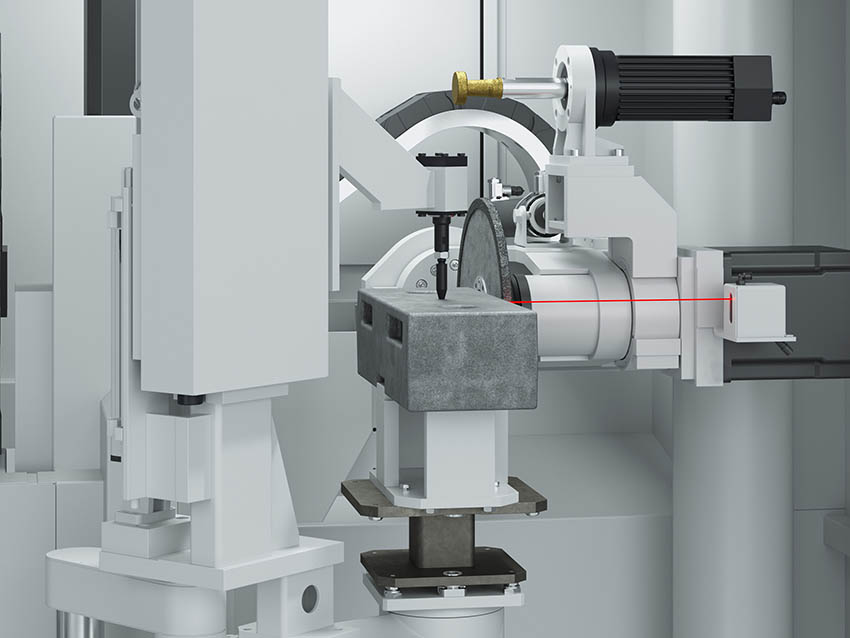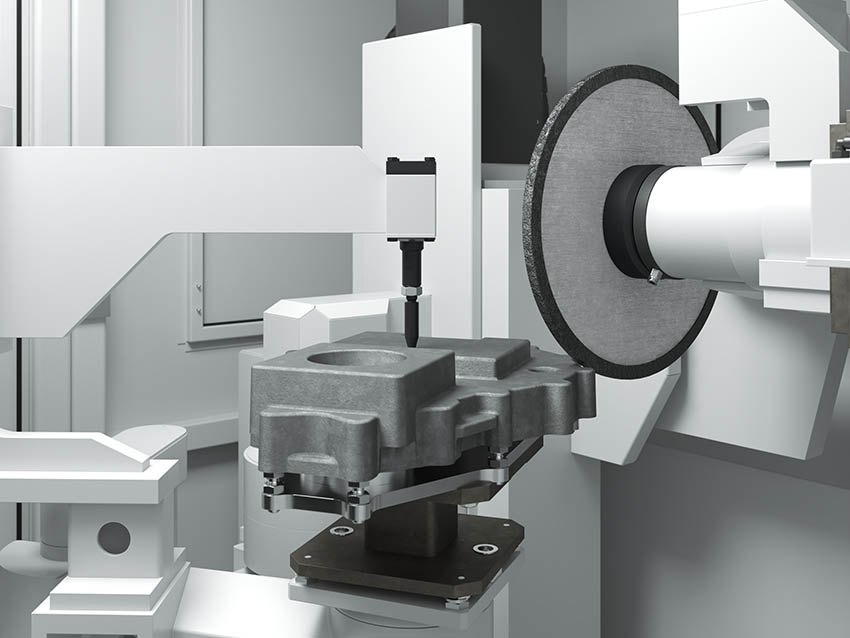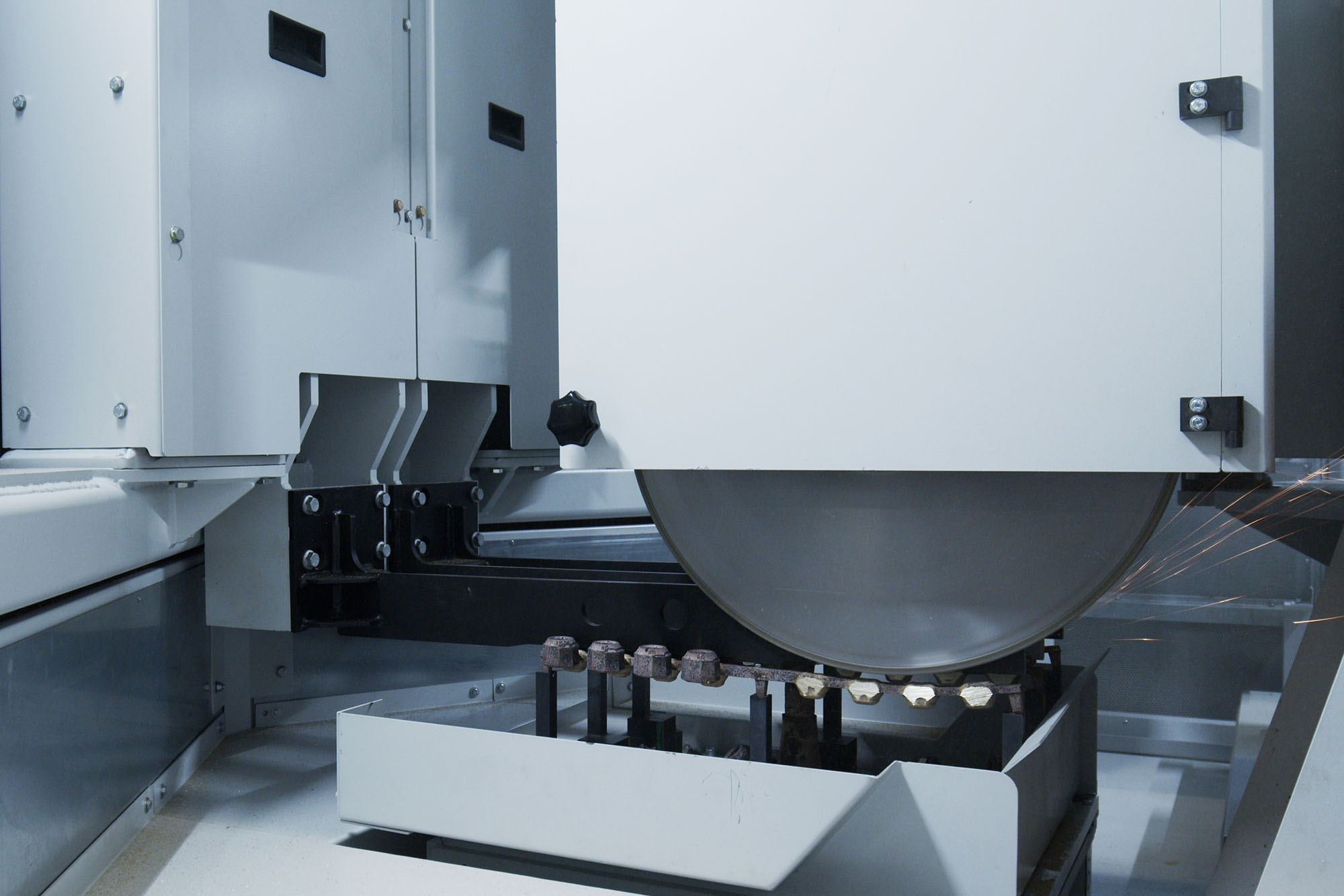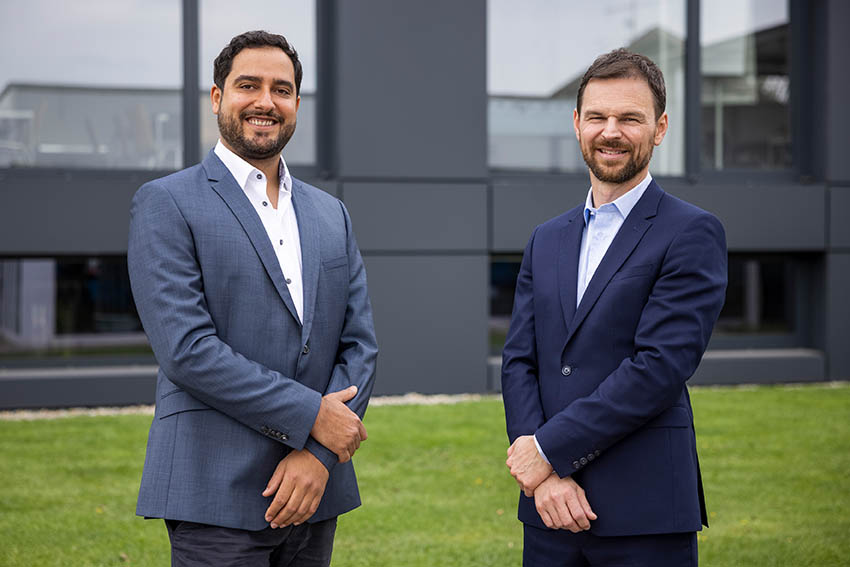The mechanical engineering company Reichmann & Sohn GmbH has more than 100 years of experience and engineering competence in grinding and cutting technology. Customers around the world trust in the high level of innovation, reliability and quality of the machines “Made in Germany”. The German family business is operating in three independent business units.
In the business unit SKI & BOARD TUNING, Reichmann is among the leading providers for ski service machines and rent or depot systems. The business unit REMA is providing manual grinding, polishing and cutting machines for the continuing demand of workshop grinders. The third unit, the CASTING FINISHING division, lays its focus on grinding and cutting of foundry products and linear technology.
Since July 1st Reichmann & Sohn GmbH is owner of the intellectual property of the Italian company MAUS s.r.l.. With the acquisition, Reichmann has secured valuable know-how in the field of foundry automation. This way, Reichmann is further expanding its position as a world’s leading provider of automatic casting finishing solutions and opening up new growth and development potential.
Interview with Rafael Dineiger, Sales Manager International at Reichmann & Sohn GmbH.
Easy Engineering: What are the main areas of activity of the company?
Rafael Dineiger: Reichmann Casting Finishing is offering automated grinding and cutting solutions for foundry cast parts.
Today, the majority of brake discs and drums worldwide are finished with Reichmann grinding systems. The extremely high availability over years, short cycle times, high-quality results and the long-life machine design “Made in Germany” positioned us as a leading provider for casting finishing solutions.

Apart from round parts grinding systems, Reichmann offers customer-tailored solutions for abrasive cutting, deburring, surface grinding and belt grinding. To ensure a further automatization and humanization in foundries, the machines can be equipped with suitable robot applications.
The Reichmann systems enable positive effects on costs, productivity, quality, health and safety in foundries worldwide.
The machines are used internationally for all types of metals, cast parts, forgings and alloys. These include cast parts for the automotive industry, aviation, medical technology, turbine and power plant technology, road and sewer construction, cast parts for agricultural and construction machinery as well as fittings.
E.E: What’s the news about new products?
R.D: By taking over the intellectual property of MAUS, Reichmann has combined the technical know-how and experience of both companies. The result is the new MAUS 600 product line: the best of both worlds.
The new MAUS 600 is a 5-axis NC machine designed especially for small to medium batch size castings or linked in-line solutions. The “Made in Germany” title indicates a typical robust and reliable manufactured product developed from a high level of process know-how to provide ultimate flexibility in a standardized compact housing. This reduces the initial capital investment cost and improves the delivery lead time.
The new compact automatic grinding center processes a wide range of cast parts made of iron, steel, brass, copper or aluminum up to a weight of 100 kg. For heavier castings, Reichmann will introduce further machine variants within the MAUS line in the coming year. A large selection of grinding tools can be adapted to the standard interface to suit the process.
A highlight of the new MAUS 600 is the exceptionally easy machine operation. The machine enables the operator to set up a program for a new cast part intuitively within hours. Due to the standard fixture interface a new device can be created in no time. The simplest programming and device creation ensures minimal set-up times for a new casting. This makes the machine extremely economical even with smallest batch sizes.
E.E: What are the ranges of products?
R.D: Reichmann is offering grinding and cutting solutions for a wide range of materials like cast iron, steel or high-alloyed castings. The systems can be used for very small cast parts up to a max. casting diameter of 2200 mm and 1000 kg weight (casting + fixture). Solutions can be offered for small batch sizes as well as for mass cast parts.
E.E: At what stage is the market where you are currently active?
R.D: There is still a huge potential for foundry automation on the market. A large number of foundries as well as their service providers are just beginning to automize their processes. Especially in the service provider sector, there is a huge need for highly available and easy to operate automated solutions. For these companies, the flexibility of the investment is very important. This is what we like to offer with our new standardized compact machine that can be flexibly used for a wide range of cast parts and is extremely easy to operate.
With our new MAUS 600 product line we aim to offer foundries and their service providers an easy entry from manual to automatic grinding and to optimize processes for greater profitability and reduced labour costs.
E.E: What can you tell us about market trends?
R.D: Foundries and their service providers show a high demand on more flexible solutions to meet the uncertainties of the market. Machines should be universally applicable for a wide range of cast parts and easy to operate. To get this flexibility, companies are willing to make more compromises on precision than they did in the past.
When it comes to the choice between robot or NC solutions, there is no clear trend recognizable.

E.E: What are the most innovative products marketed?
R.D: With the launch of our new MAUS product line, we are setting new standards regarding usability, maintenance and ergonomics.
The machines are offering an intuitive teach-in procedure which makes programming extremely easy, even for operators without any prior programming skills. Complex machining programs are created and optimized directly in the work area with the pre-installed function favorites within a few hours. The modern user interface is IIOT-ready which allows a targeted collection, evaluation and integration of data. This helps to identify downtimes before they occur and thus increases productivity and reduces costs.
The MAUS 600 product line consists of three machine variants. The new door variant enables particularly ergonomic loading directly on the machine. Compared to the light barrier variant, this saves the operator having to step back and forth for loading and unloading. At the same time, the control panel is within easy reach for programming and operation. An extra plus is the extremely compact footprint which allows an easy transport.
The centralized lubrication system and the extra-large residue chip drawer reduce the maintenance work to a minimum.
As a German mechanical engineering company with many years of experience, Reichmann offers a high level of engineering competence. Together with the customer, Reichmann searches for the optimal solution for individual process optimization. Aspects such as profitability, amortization, humanization of workplaces and use of space are taken into account to a high degree.
This results in innovations like the development of a universal chuck. In order to process a particularly wide range of cast parts efficiently and in a time-saving manner, an individual solution for universal mounting of the workpieces was required. The newly created universal chuck can be converted from prismatic to round parts with minimal set-up and covers a very wide range of different workpiece diameters. This offers the users enormous time savings and makes work easier.

E.E: What estimations do you have for 2022?
R.D: We are very happy about the successful launch of the new MAUS 600 series and are expecting continuously positive feedback and inquiries for 2022. With the new MAUS series, we aim to expand our market presence and meet the demands for flexible standardized solutions.
For the installed MAUS systems on the market, we like to offer an improved and ongoing customer service.
We are also looking forward to new challenges regarding cutting or grinding solutions for mass cast parts in foundries.


